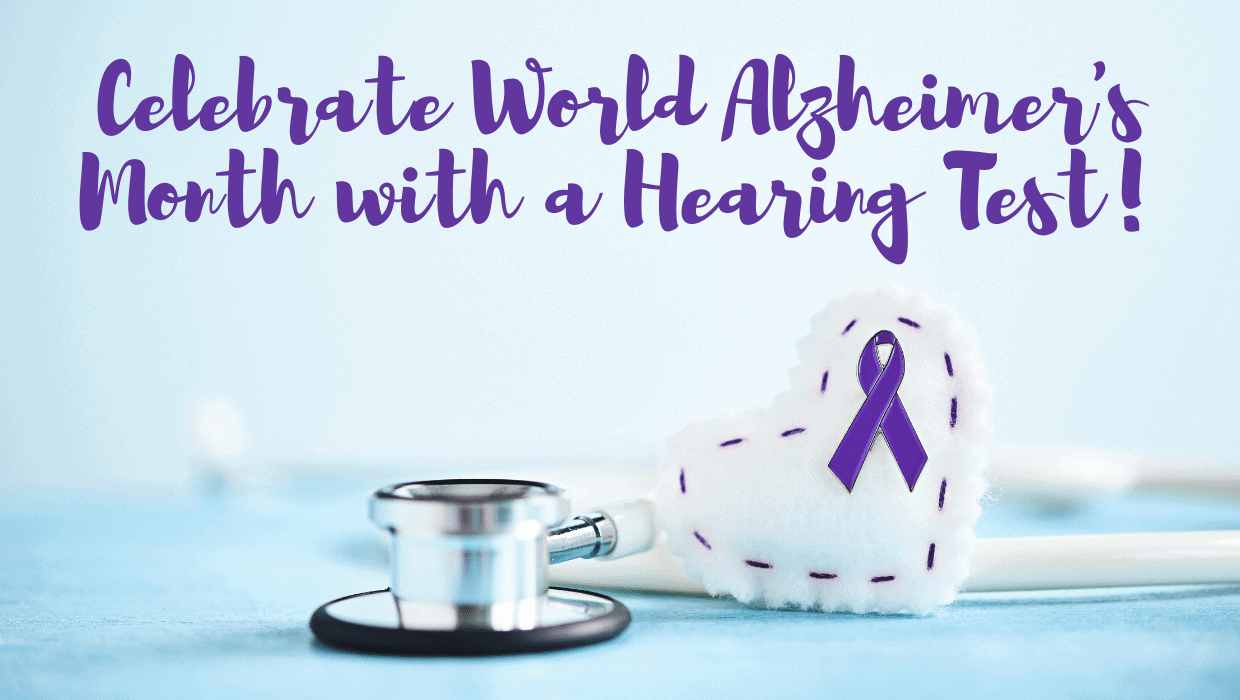- Everyday Sounds That May Be Making Your Tinnitus Worse - May 7, 2025
- The Hidden Dangers of Everyday Noise and How to Stay Safe - April 9, 2025
- World Hearing Day Serves as a Reminder to Prioritize Hearing Aid Maintenance - March 3, 2025
September is a time of year in much of the country to enjoy the beginning of cooler weather and to search the trees for evidence of changing colors. With that crisper weather, we can enjoy activities that were arduous during the hot and humid summer months, and a return to school combines with these experiences in nature to lead us down the nostalgic path to the childhood pleasures of autumn.
Not only are these yearly reminders on our minds this month, but the month has also been set aside to celebrate the service and successes of caregivers and researchers in the Alzheimer’s community. With tireless attention to daily needs, the loved ones and professional caregivers for people with Alzheimer’s disease and other forms of dementia are incredible members of our communities, generously giving of their time and patience to those who have these lifelong conditions.
In addition to considering ways to slow down or even reverse cognitive decline among Alzheimer’s clients, a new line of fruitful research has considered the characteristics and lifestyle habits that make these conditions more common. Although they do not always understand the mechanism connecting a condition to Alzheimer’s and other forms of dementia, these statistical relationships are considered “risk factors” that should be observed and controlled whenever possible. Let’s take a moment to look at some items on the list of risk factors with special attention to one factor with treatment within our grasp: hearing loss.
The Risks of Alzheimer’s Disease
Beginning in early life, researchers have discovered human characteristics as well as lifestyle behaviors making it more likely for a person to develop Alzheimer’s disease and other forms of dementia later in life. One of these early-life factors is the level of education in childhood.
Remarkably, if a person does not get adequate education as a child, the brain is more likely to experience a cognitive disorder later in life. The solution for this relationship exists at the level of social policy, where governments can promote education in at-risk populations, particularly those facing poverty and rural exclusion from public schooling. Many of the health conditions connected to higher rates of Alzheimer’s disease are preventable, and the classic factors of diet and exercise go a long way toward limiting risk factors such as hypertension and diabetes.
Other unhealthy factors such as smoking and excessive alcohol consumption have been linked to Alzheimer’s disease and other forms of dementia, providing yet another reason to curtail these habits as soon as possible. Factors in adulthood have to do with the environment, including exposure to air pollution. Those in heavily polluted environments have tended to have higher rates of dementia compared with those with better air quality, and this is another risk factor deserving attention at the highest levels of society where pollution abatement can be regulated. One more risk factor—hearing loss—comes as a surprise to many, so let’s consider what you can do about it.
Hearing Loss and Alzheimer’s Disease
If you believe you may have a hearing loss, it is more important than ever to get a hearing test and to seek treatment. Recent studies have discovered that those with hearing loss are more likely to develop dementia, and once they do develop dementia the rate of cognitive decline tends to be faster. Many point to the ability to understand human speech as a connecting factor between the two conditions.
When it is difficult to understand speech, our brains scramble to assemble something meaningful out of the mélange of syllables and sounds. That puzzle-solving function is normally used for other more complex problems and logical quandaries in everyday life, and the brain becomes overloaded with the expectation to be solving sonic puzzles at all times.
If a hearing loss is detected, our team will be able to connect you with an appropriate range of hearing aids. Once you have access to hearing treatment, these aids will take over for your brain and fill in the gaps in missing sound, forming language that is easy to apprehend. Contact us today to learn more about our comprehensive hearing health services!

